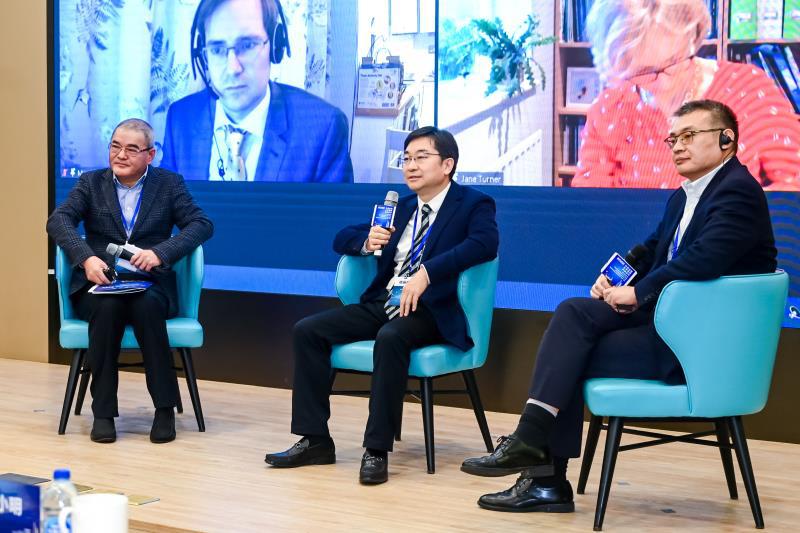On the afternoon of December 5, the UK-China Conference on the Development of Science Literacy for All jointly organized by Shanghai Open University, Shanghai Teacher Institute (The Teaching Research Section of Shanghai Municipal Education Commission) and The Open University, UK,was held in Guoshun Road Campus of Shanghai Open University. The theme of this conference was Development of Science Literacy for All , and two roundtable forums were set up under the framework of the theme: Practice and Development of the Science Literacy System for All, and UK-China Collaboration- Build A High-quality Science Education System at the Basic Education Level in China. The conferencewas held in a hybrid format and lasted for half a day. The conference was chaired by Ms. Zhang Jin, Vice President of Shanghai Open University.
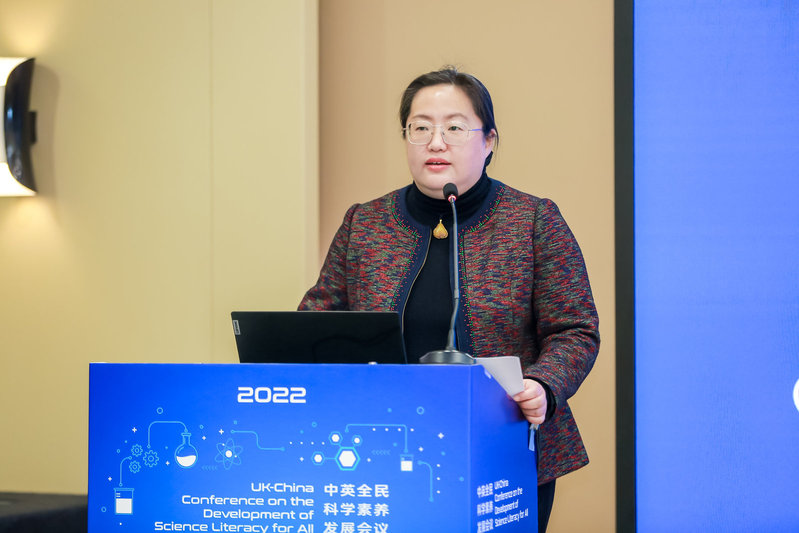
Jia Wei, President of Shanghai Open University, delivered a welcome speech on behalf of the organizing institutions. Li Yongzhi, Deputy Director of Shanghai Municipal Education Commission, and Andrew McAllister, Acting Consul General of the British Consulate General in Shanghai attended the conference and delivered speeches in the Opening Ceremony.

Jia Wei mentioned in his speech that the improvement of science literacy cannot be separated from the power of science education and popularization. As a university within reach for every learner, Shanghai Open University carries the important mission of serving urban development, improving citizens' literacy, and building a learning society "learning truly happen to every person, at any time and in any place". He hoped that this conference would become an academic feast for the science education dialogue between China and the UK, deepening mutual learning, strengthening the ties of cooperation, incubating more two-way education exchanges and cooperation projects, and further promoting cultural exchanges between China and the UK.
Li Yongzhi said in his speech that this conference was an important measure of practical cooperation in education between China and the UK. He hoped that the holding of the conference would enrich bilateral exchanges and cooperation in science popularization, build a bilateral dialogue platform for science popularization education expanding from basic education to lifelong education, continuously improve the science literacy for all the citizens in Shanghai, and promote the in-depth development of education cooperation between the two countries.
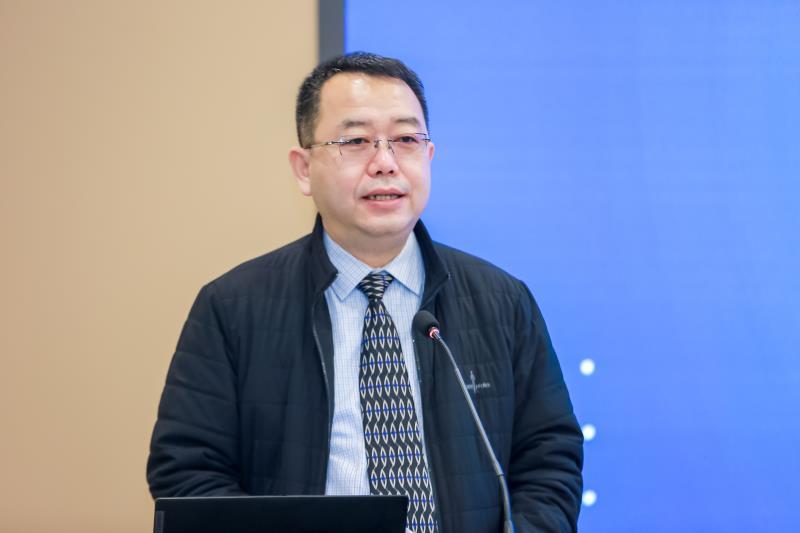
Andrew McAllister mentioned that Shanghai had always been at the forefront of international education cooperation between the UK and China, and he looked forward to seeing the UK-China's communication and cooperation as well as fruitful exchanges in the future.
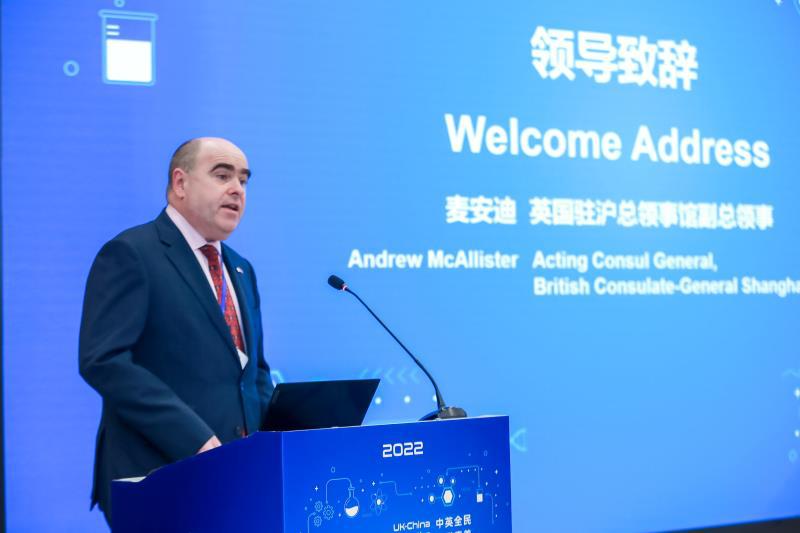
More than 50 representatives from Shanghai Education Commission, British Consulate General in Shanghai, Shanghai Science and Technology Museum, Shanghai Open University, Shanghai Teacher Institute, community colleges in Shanghai, Oxford University Press, Pearson Education Group and other units participated the conference on the site. Nearly 550 participants, including the personnel from Shanghai basic education, Shanghai science education, Shanghai higher education and community education, British primary and secondary school, British science education institutions and other related areas, attended the conference online.
Jia Wei made a keynote speech entitled Science Education Empowers the Elderly for A High-quality Life in the conference. In his speech, he released the survey on science literacy and science education of the elderly in the scale of 10,000 people, and found that the overall level of science literacy of the elderly in Shanghai is relatively high, but there are still improving potentials in health knowledge and information technology application ability; the science literacy level of the elderly is related to their learning and working experience, living conditions, lifestyle, learning motivation, etc.; participating in various forms of education activities for the elderly is an important way to improve the science literacy. To improve the science literacy of the elderly, it is urgent to further expand the supply of geriatric science education, improve the curriculum system, increase the construction of online resources, and innovate educational methods.
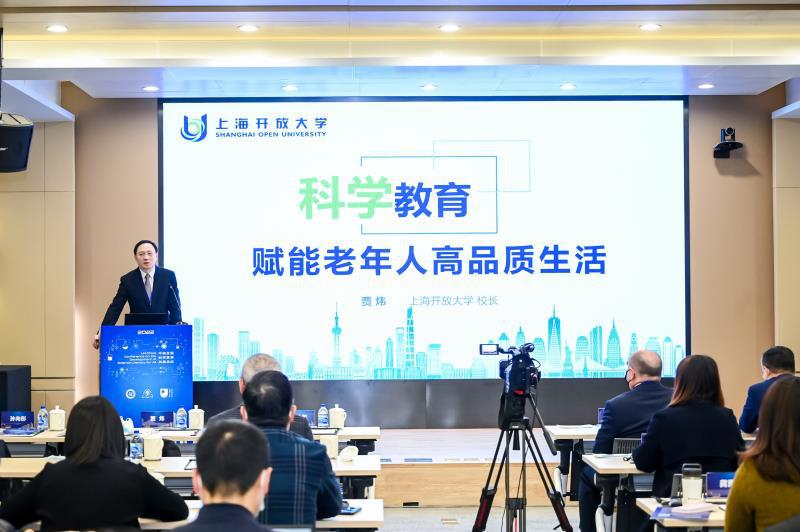
Professor Michael J. Reiss from University College London, UK, delivered a keynote speech entitled UK Science Education: Science Literacy for All . He introduced the problems faced by science education in schools around the world and the characteristics of science education in schools, and shared an evaluation report from the British Awarding Bodies setting school examinations, which showed the characteristics of the British national curriculum system compared with those of schools in other countries. In his speech, he also proposed and discussed the profound connotation of science literacy for all through three different science education situations.
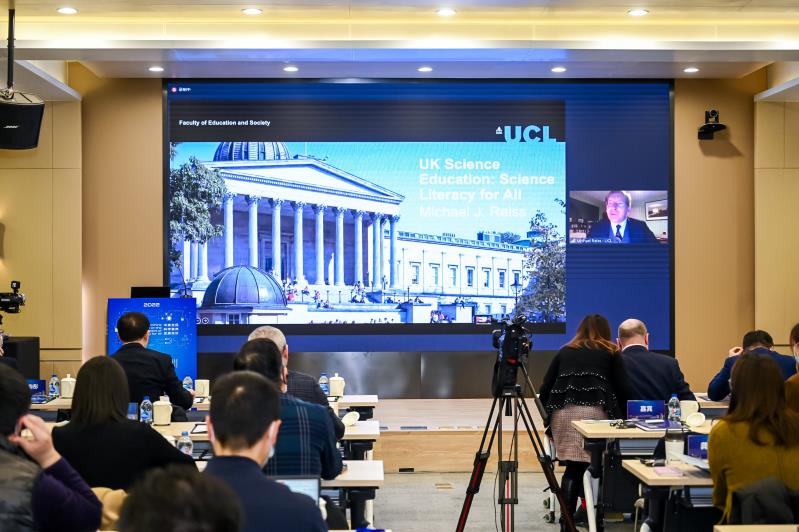
The roundtable panel on Practice and Development of the Science Literacy System for All was hosted by Sun Xiangtong, Vice President of Shanghai Open University. Ms.Janice Ansine and Dr. Yoseph Araya from the Faculty of STEM of the Open University UK, Mr.Ni Minjing, Deputy Director of the Shanghai Municipal Education Commission, Wang Xiaoming, Director-General of the Shanghai Science and Technology Museum, and Peter Gallivan, an expert from the Royal Institution of the UK, launched a series of discussions and dialogues around the theme.
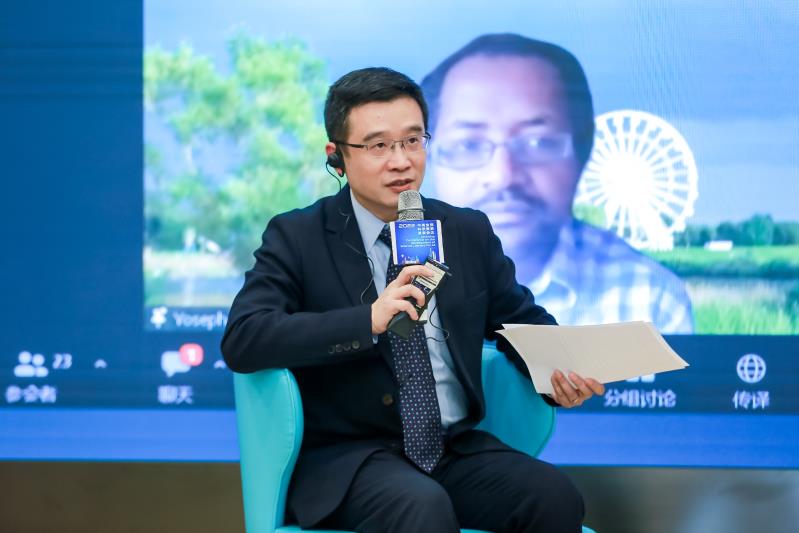
The roundtable panel on UK-China Collaboration – Build a High-quality Science Education System at the Basic Education Level in China was hosted by Ji Mingze, Vice President of Shanghai Teacher Institute. Yang Zhenfeng, Deputy Director of the Shanghai Municipal Education Commission, Marc Neesam, Head of Professional Development Solutions at Cambridge Partnership for Education, Jane Turner, associate professor of the University of Hertfordshire,and Wang Yang, President of Shanghai Teacher Institute, conducted a series of discussions and dialogues on the theme.
